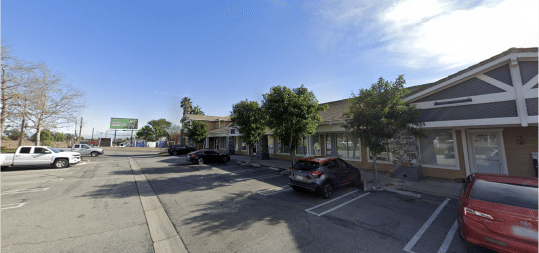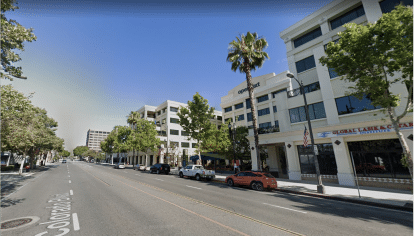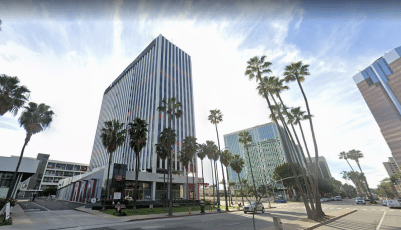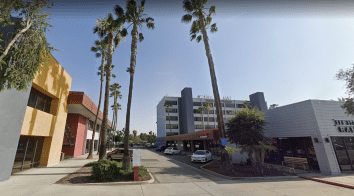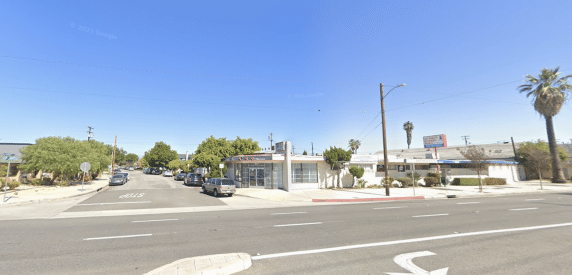
It may appear like posting bail to get out of jail is an easy thing. The concept is that when somebody has been arrested, another party can pay cash, and the individual in jail is released. While this is the basic concept regarding bail, there is a lot more to it than paying cash.
Anyone facing detention, or the arrest of a member of the family or dear one, should know how bail works, how judges decide bail amounts, what types of payment options you will use, and other related concerns. Cali Bail Bonds is happy to service the West Covina region and is accessible for any inquiries 24 hours a day, 7 days a week. If a relative or close friend is jailed, it is a good idea to get a bail bond paid as soon as possible to have them released in no time.
Bail is a word that refers to a defendant's or arrestee's release from custody before the conclusion of the court hearing. Bail can involve the accused or somebody acting on the accused's behalf, paying money to the court, although that is not always the case.
The money guarantees that the offender will appear in court for the duration of the criminal proceedings. As a result, bail is not a penalty imposed before a person is proven guilty of a crime, but rather a means of ensuring that defendants appear in court without having to hold them in jail the whole time.
Bail may be an essential part of the criminal justice system since it helps to minimize the amount of jail space required while also ensuring that persons who are out on bail will appear to court when their cases are finished. Bail could be granted at virtually any point; right after an arrest or even after a court has handed down a sentence.
When somebody is arrested, one of three things can happen: the detainee is freed, charged, and released on bond, or is charged and stays in jail until the prosecution is completed. Bail is a means for people to get out of jail while a court determines their guilt.
Once the police make an arrest, the detainees are physically taken into custody. Individuals who have been arrested are usually taken into police custody, put in a police car, and afterward transported to a prison or a criminal processing center for an official procedure known as "booking." Defendants can sometimes be freed with no charges being filed, however, if charges are pressed, the accused person must stay in jail till he or she is freed on bond until a court issues a verdict, or until the case itself is concluded.
The process that takes place after an arrest is known as booking. The police take the detainee's photo, record personal information like the name, age, and birth date, take fingerprints, take physical belongings the defendant has and store them, look for any warrants, conduct a health assessment, and place the accused person in a detention holding facility during this process.
The bail bond firm will collect information including your name, the accusations against you, the jail you have been detained in, your bail amount, and your booking number after getting a call about you.
After that, the bondsman will demand a non-refundable fee from you and obtain security to settle the bail. In most situations, the charge is 10% of the total bail amount; however, in immigration and federal proceedings, it is 15%–20%. If your possessions are inadequate, you may be able to borrow money from family or friends. Your bail will be posted by the bondsman, and you'll be freed.
Bail schedules are a listing of bail amounts applicable to specific offenses in any region. For instance, a state's bail schedules may establish a $1,500 bond for unruly conduct and $6,000 bail for theft.
Not only will state laws decide which bail rates are acceptable for every offense or if police could free a detainee without posting bail, but they'll also decide whether defendants can pay money immediately after arrest or must wait for a court appearance. They also provide judges a lot of leeways when it comes to raising or lowering bail as the court sees fit.
In California, for instance, all cases that involve specified offenses such as marital assault, marital rape, or issuing terror threats demand a bail hearing. In essence, a defendant can be released from custody on bond soon after being arrested if state rules allow it, provided the defendant is capable of paying the required sum. If a court appearance is required by law, the accused will not be allowed to post a bond or be freed till the hearing is held.
A court decides the amount of bail on a given case when it conducts a bail hearing. Courts are not required to grant bail and might refuse it if state law allows it. When deciding on bond amounts or whether to refuse bail, the court considers several factors:
Certain defendants are more likely to flee than others. Defendants facing death penalties or extended years of jail, for example, are much more inclined to try to run than those receiving less severe penalties.
Bonds with the Community Someone who has significant ties to a town, for example as somebody who runs a local business or whose family lives in the region, is less inclined to leave or refuse to attend court than somebody who is just passing through.
Whenever a defendant is obligated for the welfare of his or her family members or other dependents, courts are more inclined to set a lower bond sum.
A detainee with lots of money or property may not perceive a low bail amount as a substantial deterrent, but individuals with limited assets may be severely impacted by bail sums that are outside of their means. A court can also examine whether an accused is working and is prone to losing his or her job as a result of failing to post bail and being in jail.
Bail amounts for anyone with criminal backgrounds, particularly those involving failures to attend court hearings, are relatively higher than for individuals who are entering the judicial system for the first time. If a defendant has previously been released on bail but has consistently broken bail rules or refused to show up in court, judges would generally set a considerably larger bond than someone who has never failed to attend court. They also may refuse bail altogether.
Generally, the bail amount for a more severe crime will be greater than for a less serious one. Bond for a small burglary charge, for instance, could be $1,000 or even less, whereas bail for a murder conviction could be hundreds of thousands of dollars or more.
Courts usually refuse to grant bail when the accused's release will endanger the health & wellbeing of individuals and the public in general. A defendant accused of plotting to engage in terrorism, for instance, could be refused bail because his or her release may endanger the lives of other people.
The state can charge a maximum bail bond fee of 10% on any bail signed by a bondsman. This is a one-time fee that cannot be refunded. The California Department of Insurance determines the maximum fee, and the only way to avoid it is to post bail or borrow money from a friend or relative.
Because most states in the US follow a 10% bail bond charge, California is in the standard range when it comes to bail expenses. Remember that this is the maximum amount that might be charged. You may be able to identify a bail bondsman that will only charge you 8% or less for your bail bond.
These scenarios are unusual since a 10% balance is generally sufficient to keep the bondsman in business. Please check with your bail bondsman to determine if any additional court or administrative fees are required. These expenses, in addition to the 10% bail bond premium, typically run from $25 to $50 and should be paid upfront.
Bail is not a punishment or a criminal conviction, therefore anybody who pays it has the right to have their money back if the defendant follows all of the bail terms and conditions. Whenever someone posts bail, there might be two possible outcomes: the bail is returned to the payer or is forfeited.
Most individuals will use a bail bond agency to pay bail because they may not have enough cash to pay the bail. A bail bond is an agreement between a defendant and the bail bond agency. You agree to show up in court whenever summoned, and the agency agrees to make bail on your behalf.
You must pay the agency a fee, which is usually 10 percent of the total bond amount established by the court. This fee is non-refundable, but it can be lowered to 8% of the total bail amount if the defendant is referred to the agency by an attorney.
The bail bond agency loses the bail money if you fail to attend court. As a result, these agencies will have a strong motive to keep an eye on you and ensure you make an appearance. If you refuse to do so, the agency will be responsible for finding you.
For a bail bond service to make bail on your account, an agent will almost always ask for some type of security. This could be a property, a vehicle, or whatever you possess that is valuable. This collateral could be used to compensate for the forfeiture of the bail money if you do not attend court.
You must either have the required amount of money at hand or deposit a check for that bail amount at the jail to be allowed to pay bail. You could be able to pay bail using a credit card in certain regions. Although cash is the most convenient option to post bail, the sums often vary from $10,000 up to $100,000, which makes it less likely that most individuals could have that money on hand.
The cash bail will be refunded if you appear in all of your court hearings. In some situations, though, the cases might continue a year or longer, and you will be unable to utilize or invest the funds in any way. If you don't show up for any court appearances, you risk losing your money.
When you pay cash bail, you may expect to receive your money returned from the county 6 to 12 weeks following the case. If the defendant refuses to attend court and the bail money becomes “forfeited,” then you'll have 180 days to find the defendant and take him or her into custody, or to contact police authorities to detain him. If the defendant is not brought to jail after 180 days, your monetary bail will be lost to the State.
You can pay a property bond rather than a cash bond or pay the fee required to use a bail bond service. To secure your attendance in court, you must pay your ownership interest in real property. Nevertheless, the equity has to be worth double the bail amount. The estate should have already been assessed, any defaults must be declared, and the estate equity should be properly evaluated to get a property bond.
If the court determines that there is sufficient equity in the property, it will approve the property bond and discharge you from jail. If you don't show up in court when you're supposed to, the state will put a lien on your house. To recoup the bail money, there will be a foreclose on your property.
The jail is overseen by the Police Department in West Covina. It functions as a detention center for men and women detained by the West Covina Police Department. Detainees are only detained here till they're discharged on their own recognizance, make bail, or are transported to court for prosecution.
Male detainees who cannot make bail or who have been found guilty of their crime will usually be moved to a larger County jail in Los Angeles, like:
Female detainees are taken to the Century Regional Detention Facility. It is located approximately 8 miles south of downtown Los Angeles. Their address is 11705 South Alameda Street, 90262 Lynwood, CA, and can be reached at 357-5100 (323).
If you or a family member is arrested in West Covina, CA, contact Cali Bail Bonds at 562-376-5476. We have skilled agents who will guide you through the bail process once you have been released on bond. You can hire our services at any time as we are accessible 24 hours a day, seven days a week.
"*" indicates required fields
